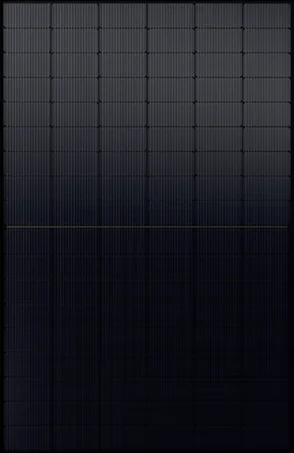အိမ်ပေါ်မှာ နေရောင်ခြည်စွမ်းအင်ပြားတွေ ထည့်ခြင်းက အိမ်ချေးငွေကို ပြန်လည် ငွေကြေးထောက်ပံ့ဖို့ ဘယ် သင်ဟာ စနစ်ကို တကယ့်ကို ပိုင်ဆိုင်ရင် မကြာခဏ သင့်ရဲ့ အိမ်ခြံမြေရဲ့ တန်ဖိုးကို တိုးမြှင့်ပေးပြီး ပိုကောင်းတဲ့ ချေ ဒါပေမဲ့ သင်ဟာ ပြားတွေကို ငှားရမ်းနေရင် ဒါမှမဟုတ် သူတို့အပေါ်မှာ လုံခြုံမှုရှိရင် အရာတွေဟာ ရှုပ်ထွေးနိုင် ဒါကို အလုပ်လုပ်ဖို့ သော့က ပိုင်ဆိုင်မှုရဲ့ ခိုင်မာတဲ့ အထောက်အထားရှိခြင်းနဲ့ စွမ်းအင် စာရင်းတွေကို ဘယ်လောက် ချ
နေရောင်ခြည်စွမ်းအင်ပြားများနှင့် အိမ်ရှယ်ယာများ အကြား ဆက်ဆံရေး
နေရောင်ခြည်စွမ်းအင်တပ်ဆင်မှုများသည် အိမ်ခြံမြေအကဲဖြတ်မှုကို ဘယ်လိုသက်ရောက်သည်
နေရောင်ခြည်စွမ်းအင်ပြားတွေဟာ သင့်အိမ်ရဲ့ တန်ဖိုးကို တကယ်တော့ မြှင့်တင်နိုင်ပေမဲ့ အရာအနည်းငယ်ပ ဒါမှာ စနစ်ကို သင်ပိုင်ဆိုင်လား၊ ဘယ်လောက် စွမ်းအင်ထုတ်လုပ်လား၊ သင့်ဒေသထဲက ဝယ်ယူသူတွေဟာ စိမ်းလန်းတဲ့ စွမ်းအင်ကို လိုက်လားဆိုရင် ပါဝင်ပါတယ်။ စနစ်ကို
အပိုတန်ဖိုးကို ရှာဖွေတဲ့အခါ အကဲဖြတ်သူတွေဟာ သင်ပေးခဲ့တာကို ကြည့်ပြီး အဝတ်ယူမှုကို ဖယ်ရှားနိုင်ပါတယ်။ ဒါမှမဟုတ် နှစ်ပေါင်းများစွာ လျှပ်စစ်ဓာတ်အားဖြင့် ဘယ်လောက် ငွေချွေတာလဲဆိုတာ သူတို့တွေ အိမ်ရဲ့ တန်ဖိုးကို ကူညီဖို့ ဒါက ဘယ်သူပိုင်ရှိတာ၊ ဘယ်လောက် အလုပ်လုပ်တာ၊ တပ်ဆင်ဖို့ ဘယ်လောက် ကုန်ကျတာဆိုတာ ရှင်းလင်း
စွမ်းအင်ထိရောက်မှု တိုးတက်မှုများမှ အရင်းအမြတ်
စွမ်းအင်ကို ချွေတာတဲ့ အဆင့်မြှင့်မှုတွေဟာ နေရောင်ခြည်စွမ်းအင်ပြား စီမံခန့်ခွဲမှုတွေလိုပဲ အိမ်ရဲ့ ၎င်းတို့ဟာ လျှပ်စစ်ကုန်ကျစရိတ်တွေကို လျှော့ချပြီး သင့်နေရာကို ဝယ်ယူသူတွေအတွက် ပိုဆွဲဆော ကောင်းမွန်စွာ တပ်ဆင်ထားတဲ့ စနစ်နဲ့ မှန်ကန်တဲ့ စာရွက်စာတမ်းတွေဟာ ရောင်းချမှုစျေးနှုန်းပိုမ ဒါဟာ အထူးသဖြင့် လျှပ်စစ်ကုန်ကျစရိတ် မြင့်မားတဲ့ နေရာတွေမှာ မှန်ပါတယ်၊ ဒါမှမဟုတ် စည်းမျဉ်းတွေဟာ လျှပ်စစ်အား
နေရောင်ခြည်စွမ်းအင်ပြားများ ရှိသည့်အခါ အဓိက ပြန်လည်ငွေကြေးထောက်ပံ့ရေး စဉ်းစားခ
ပိုင်ဆိုင်မှုတည်ဆောက်မှု: ဝယ်ယူခြင်းနှင့် ငှားရမ်းခြင်းစနစ်များ
သင့်ရဲ့ နေရောင်ခြည်စနစ်ကို ပိုင်ဆိုင်ရင် ပြန်လည်ငွေကြေးပေးခြင်းဟာ ပုံမှန်အားဖြင့် ပို အပြည့်အဝပေးချေတဲ့အခါ အိမ်ရဲ့ အရင်းအမြစ်တွေရဲ့ အစိတ်အပိုင်းအဖြစ် ရေတွက်ပြီး စုစုပေါင်း တန်ဖိုးကို ထပ်ပေးတယ်။ တစ်ဖက်မှာ စနစ်ကို ငှားရမ်းရင် ဒါမှမဟုတ် အခြားသူတစ်ယောက်က ပိုင်ဆိုင်ရင် ချေးငွေပေးသူတွေက ဒါကို ပြဿနာတစ်ခုအဖြ သူတို့ဟာ ဒါကို ကြွေးတစ်ခု (သို့) အိမ်ခြံမြေခိုင်မှုနဲ့ ပတ်သက်တဲ့ အရာတစ်ခုခုအဖြစ် စဉ်းစားနို
ချေးငွေနှင့် တန်ဖိုးအချိုးအစားနှင့် နေရောင်ခြည်စနစ်တန်ဖိုး
Loan-to-Value (LTV) အချိုးအစားဟာ ပြန်လည်ငွေကြေးပေးစဉ်မှာ ကြီးမားတဲ့ အရာတစ်ခုပါ။ သင့်ရဲ့ နေရောင်ခြည်ပြားစနစ်ကို သင်ပိုင်ဆိုင်ရင် အိမ်ရဲ့ တန်ဖိုးထဲမှာ ပါဝင်တာက ဒီအချိုးအစားကို တိုးတက်စေနိုင်ပါတယ်။ ဒါက ပိုကောင်းတဲ့ ချေးငွေစည်းမျဉ်းတွေကို ရနိုင်ပါတယ်။ ဒါပေမဲ့ ဒါကို ထောက်ပံ့ဖို့ ခက်ခဲတဲ့ အချက်အလက်တွေ လိုအပ်ပါတယ်၊ စနစ်ဟာ ဘယ်လောက် ကောင်းမွန်စွာ လုပ်ဆောင်တယ်၊ ဒါကို တပ်ဆင
နေရောင်ခြည်နှင့်အတူ အိမ်များအပေါ် အိမ်ချေးငွေချေးငွေပေးသူ အမြင်များ
အဘယ်ကြောင့် အချို့သော ချေးငွေပေးသူများသည် နေရောင်ခြည်အားဖြင့် တပ်ဆင်ထားသော အိမ်များနှင့
ပြန်လည်အသစ်ပြုပြင်နိုင်သော စွမ်းအင်ကို လူပိုများစွာ သုံးနေသော်လည်း ချေးငွေပေးသူအချို့ဟာ နေရောင်ခြည်စွ ဤသည်အထူးသဖြင့် ငှားရမ်းချက် သို့မဟုတ် လျှပ်စစ်ဝယ်ယူချက် (PPA) ပါဝင်ပါက မှန်ပါသည်။ ဤသဘောတူညီချက်များတွင် ပိုင်ဆိုင်မှု လွှဲပြောင်းခြင်း သို့မဟုတ် လစဉ် အပိုကုန်ကျစရိတ်များနှင့် ပတ်သ
ထို့အပြင် ချေးငွေပေးသူအားလုံးမှာ နေရောင်ခြည်စနစ်တွေရဲ့ တန်ဖိုးကို ရှာဖွေဖို့ ရှင်းလင်းတဲ့ စည်းမျဉ်း ဒီတော့ သင့်ရဲ့ လျှောက်လွှာကို ဘယ်သူက ကြည့်နေတာကို မူတည်ပြီး ကွဲပြားတဲ့ ရလဒ်တွေ ရနိုင်တယ်။
သင့်ရဲ့ နေရောင်ခြည် ရင်းနှီးမြှုပ်နှံမှုကို အာမခံရေးလုပ်သူတွေကို ဘယ်လိုတင်ပြမလဲ။
တစ်ဦးချေးငွေပေးသူ၏စိုးရိမ်ပူပန်မှုများကိုလျှော့ချရန်, အားလုံးစာရွက်စာတမ်းများနှင့်အတူပြင်ဆင်လာပါ. သင်သည်စနစ်ကိုပိုင်ဆိုင်ကြောင်းသက်သေကိုယူပါ သင့်ရဲ့ နေရောင်ခြည်စွမ်းအင်စနစ်ဟာ တကယ့် ငွေကို ချွေတာတာကို ပြသခြင်းက သင့်ရဲ့ ပြန်လည်ငွေကြေးလျှော ရိုးသားတော့ ဒါဟာ ကိန်းဂဏန်းတွေဟာ သင့်အတွက် အလုပ်လုပ်တယ်ဆိုတာ သက်သေပြဖို့ပါ။
နေရောင်ခြည်စနစ်နှင့်အတူ အကဲဖြတ်မှုလုပ်ငန်းစဉ်ကို လမ်းကြောင်း
နေရောင်ခြည်ဖြင့် တိုးတက်ထားသော အိမ်တွင် အကဲဖြတ်သူများ ရှာနေသော အရာများ
အကဲဖြတ်သူတွေဟာ နေရောင်ခြည်စွမ်းအိမ်တစ်ခုကို စစ်ဆေးတဲ့အခါ အရာတွေ အများကြီးကို ကြည့်ကြတယ်။ ဤသည်တွင် စနစ်၏ အရွယ်အစား (kW တွင်) ၎င်း၏ အသက်ဘယ်လောက်၊ အသုံးပြုသော နည်းပညာအမျိုးအစား (PERC သို့မဟုတ် N အမျိုးအစား TOPCon ကဲ့သို့) ၎င်းသည် နေကို ဘယ်နည်းလမ်းဖြင့
ဥပမာအားဖြင့် ထိပ်တန်းဆုံး ပြားများ N အမျိုးအစား TOPCအပေါ် WonVolt ၏ 60JWU-S Monofacial လိုင်းတွင် နေရောင်ခြည်ဆဲလ်သည် ထူးခြားသည်။ ၎င်းတို့ဟာ "စွမ်းအင်မြင့် ထုတ်လုပ်မှုနဲ့ LCOE နိမ့်" ကို ကမ်းလှမ်းတယ်၊ ဆိုလိုတာက သင့်အိမ်ကို အကဲဖြတ်သူတွေ အကဲဖြတ
သင့်ရဲ့ ပြန်လည်ငွေကြေးလျှောက်ထားမှုကို ခိုင်မာစေတဲ့ စာရွက်စာတမ်း
အသေးစိတ်စာရွက်စာတမ်းများရှိခြင်းသည် အကဲဖြတ်မှုလုပ်ငန်းစဉ်ကို ပိုရှင်းလင်းပြီး ပိုလွယ်က
- စနစ်ကို တပ်ဆင်ခဲ့စဉ်ကနေ စာချုပ်များ
- ထုတ်လုပ်သူမှ အသေးစိတ်အချက်အလက်များ
- ပစ္စည်းများနှင့် ပစ္စည်းများအတွက် ၁၂ နှစ်အာမခံကဲ့သို့သော အာမခံအချက်အလက်များ အပိုလိုင်းစွမ်းအင်ထုတ်လုပ်မှုအတွက် ပြုပြင်ခြင်းနှင့် နှစ် ၃၀ အာမခံခြင်း
- စနစ်သည် အချိန်ကြာလာပြီး ဘယ်လိုလုပ်ဆောင်ခဲ့သည်ကို ပြသသော အစီရင်ခံစာများ
- သင်ငွေချွေတာနေတာကို သက်သေပြတဲ့ အသုံးပြုမှု ငွေကြေး
ဤနည်းလမ်းများနှင့်အတူ အကဲဖြတ်သူများသည် PV Value® ကဲ့သို့သော စိတ်ချရသော နည်းလမ်းများကို အသုံးပြုနိုင်သည် သို့မဟုတ် မျှတ
ထိရောက်မှုမြင့်မားသော Panel များဖြင့် သင်၏ Refinance ဗျူဟာကို အကောင်းဆုံးဖြစ်စေခြင်း
သင့်အိမ်ခြံမြေကို ရေရှည်တန်ဖိုးထည့်သွင်းသော panel များကို ရွေးချယ်ခြင်း
ထိရောက်မှုမြင့် ပြားများကို သွားခြင်းဟာ အိမ်အတွက် စွမ်းအင်ပိုများတာသာ မဟုတ်ပါဘူး။ ပြန်လည် ငွေကြေးထောက်ပံ့မှု စည်းမျဉ်းတွေ ကောင်းတာအတွက် ပိုခိုင်မာတဲ့ အခြေအနေကိုလည်း တည် PERC နဲ့ N-type TOPCon လို နည်းပညာတွေဟာ အဟောင်းပြီး အခြေခံပြားတွေထက် ပိုကောင်းတဲ့ အလုပ်လုပ်တယ်။ ၎င်းတို့ဟာ စွမ်းအင်ကို ပိုထုတ်လုပ်ပြီး ပိုကြာကြာကြာပါတယ်။
ယူပါ WonVolt ကိုဥပမာအားဖြင့်။ သူတို့ရဲ့ အိမ်ယာပုံစံတွေက 54JWU-S ကို Monofacial 54JWU – 440 ~ 450M • အိမ်သာခေါင်မိုးများအတွက်မွေးဖွား • N-အမျိုးအစား TOPCon နေရောင်ခြည်ဆဲလ် • မြင့်မားသောစွမ်းအင်ထုတ် & amp; LCOE နိမ့်ပြီး IEC 61215/61730 လို ခိုင်မာတဲ့ စံနှုန်းတွေကို ဖြည့်ဆည်းပါတယ်။ ဆိုလိုတာက ၎င်းတို့ဟာ ဘေးကင်းပြီး ရေရှည်ဖို့ တည်ဆောက်ထားတယ်၊ ဒါက သင့်အိမ်ရဲ့ တန်ဖိုးအတွက် အနိုင်ပါ။
WonVolt သည် ရေရှည်နေရောင်ခြည်ရင်းနှီးမြှုပ်နှံမှုအတွက် စမတ်ရွေးချယ်မှုဖြစ်သည်
စွမ်းဆောင်ရည်အတွက် တည်ဆောက်ထားပြီး ပြန်လည်ငွေကြေးထောက်ပံ့မှုအတွက် ဒီဇိုင်းထုတ်ထား
WonVolt သည် နေရောင်ခြည်စွမ်းအင်ပြားအတွက် 1.2GW နှင့် လီသီယမ်ဘက်ထရီအတွက် 2.5GWh စွမ်းဆောင်ရည်ရှိပြီး တစ်ရပ်တည်းသ ၎င်းတို့၏ စီမံကိန်းတွင် နေရောင်ခြည်စွမ်းအိမ်များ (PERC, N-type TOPCon နှင့် HJT) ပါဝင်ပြီး အိမ်ခေါင်မိုးများ သို့မ
ပြန်လည်ငွေကြေးထောက်ပံ့ရေး သို့မဟုတ် အနာဂတ်တိုးတက်မှုအတွင်းတွင် မိုးခေါင်ပေါ်ရှိ နေရောင်ခြည်နှင့်အတူ ကျွန်တော် ESS လိုင်းကို ရိုက်ဖို့ ခက်ခဲတယ်။ သူတို့ရဲ့ ကွန်တိန်နာ BESS ကို(ဘက်ထရီစွမ်းအင်သိုလှောင်မှုစနစ်) ကြီးမားသောစွမ်းဆောင်ရည်ကိုကမ်းလှမ်းသည်: 20HC ကွန်တိန်နာ: 1720kWh အ 40HC ကွန်တိန်နာ: 3440kWh အထိ။ ဒါဟာ မည်သည့် စီမံကိန်းအတွက်မဆို လေးနက်တဲ့ စွမ်းအားတစ်ခုပါ။
ထို့အပြင် WonVolt ထုတ်ကုန်များသည် ကမ္ဘာတစ်ဝှမ်းရှိ နိုင်ငံများနှင့် ဒေသများ ၉၀ ကျော်ကို ဝ ဒီကမ္ဘာလုံးဆိုင်ရာ ယုံကြည်မှုဟာ ချေးငွေပေးသူတွေကို သင့်ရင်းနှီးမြှုပ်နှံမှုဟာ ခိုင်မာတာကို ပြသ
နေရောင်ခြည် အရင်းအမြစ်များဖြင့် ပြန်လည်ငွေကြေးထောက်ပံ့ရန် ဘဏ္ဍာရေးစာရွက်စာတမ
ပိုင်ဆိုင်မှုနှင့် တပ်ဆင်မှုကုန်ကျစရိတ်များ၏ သက်သေခံစုဆောင်းခြင်း
နေရောင်ခြည် အရင်းအမြစ်တွေနဲ့ ပြန်လည် ငွေကြေးထောက်ပံ့ဖို့ လျှောက်ထားမီမှာ ဒီအရာတွေကို စုစ
- စနစ်ကို ဝယ်ခဲ့တဲ့အခါ လက်ခံလက်ခံပါ။
- သင့်ရဲ့ လျှပ်စစ်ကုမ္ပဏီနဲ့ ကွန်ရက်ကို ချိတ်ဆက်ဖို့ သဘောတူညီချက်တွေပါ။
- ထုတ်လုပ်သူကနေ အာမခံစာရွက်စာတမ်းတွေပါ။
- ပြုပြင်မှု (သို့) ထိန်းသိမ်းမှု မှတ်တမ်းများ။
- အချိန်ကြာလာပြီး ဘယ်လောက် စွမ်းအင်ရလဲဆိုတာ စောင့်ကြည့်ရေး အက်ပ်ကနေ အစီရင်ခံစာတွေပါ။
ဒီစာရွက်စာတမ်းတွေက စနစ်ထဲကို ငွေထည့်ထားပြီး ကောင်းမွန်စွာ လုပ်ဆောင်နေတယ်လို့ သက်သေပြပြီး ချေးငွေပေးသူတွေအတ
ပြန်လည်ငွေကြေးခွင့်ပြုချက် အခွင့်အလမ်းများကို တိုးတက်စေရန် သင်လုပ်နိုင်သော အဆင့်များ
လျှောက်ထားမှုမပြုမီ Liens သို့မဟုတ် UCC ဖိုင်များကို ဖယ်ရှားခြင်း
ငွေကြေးထောက်ပံ့ရေး နေရောင်ခြည်ပစ္စည်းများမှ UCC မှတ်တမ်းများကဲ့သို့သော မည်သည့် ပြန်လည်ငွေကြေးထောက်ပံ့ရေး သင့်ရဲ့ တပ်ဆင်သူ (သို့) ဘဏ္ဍာရေးပေးသူနဲ့ စကားပြောပြီး လိုအပ်ရင် လုံခြုံမှုက ပျောက်သွားတယ်လို့ ပြောတဲ့ စာတစ
ဒါကို လုပ်ခြင်းက အိမ်ခြံမြေခိုင်မှုကို ရှင်းလင်းစေပြီး ချေးငွေပေးသူကို အန္တရာယ်နည်းစေတယ်။ ဒါက ခေါင်းကိုက်မှု အများကြီးကို ကယ်တင်နိုင်တဲ့ အဆင့်လေးတစ်ခုပါ။
ပြန်လည်သုံးစွဲနိုင်သော စွမ်းအင်စနစ်များနှင့် ကျွမ်းကျင်သော အကဲဖြတ်သူများနှင့် အလ
အစိမ်းရောင် စွမ်းအင် အစီအစဉ်တွေကို သိတဲ့ အကဲဖြတ်သူတွေနဲ့ ပူးပေါင်းပါ။ နေရောင်ခြည်ကို ထည့်သွင်းပြီးနောက် သင့်အိမ်ရဲ့ တန်ဖိုးကို ပိုနားလည်လိမ့်မယ်။ အကဲဖြတ်ရေးအဖွဲ့အစည်း၏ ရေရှည်တည်တံ့သော အဆောက်အအုံများ၏ တန်ဖိုးတန်မှု ကျွမ်းကျင်သော ဖွံ့ဖြိုးတိုးတက်မှု အ
ဒီအကျိုးကျေးဇူးတွေဟာ သင်ချွေတာတဲ့ ငွေနဲ့ ထိရောက်မှုမြင့် စနစ်တွေရဲ့ ပတ်ဝန်းကျင်ဆိုင်ရာ အကျိုးကျေးဇူးတွေကို ထည့် WonVolt ၏ ထုတ်ကုန်များသည် မြန်မာမှ တောင်အာဖရိကအထိ (Solar Panel: 605W * 2810 PCS 1.7MW Battery: 3.4MWh Inverter: 500KW * 3 PCS) နေရာတိုင်းတွင် အသုံးပြုသည်။
FAQ များ
မေးခွန်း ၁: နေရောင်ခြည်စွမ်းအင်အိမ်များကို ငှားရမ်းခဲ့ပါက ကျွန်ုပ်အိမ်ကို ပြန်လည်ငွေကြ
ဖြေ: ဟုတ်ပါတယ်၊ ဒါပေမဲ့ အရာတွေကို ပိုခက်ခဲစေနိုင်ပါတယ်။ ငှားရမ်းထားတဲ့ ပန်းလ်တွေဟာ အခြားတစ်ယောက်ယောက်က ဒါတွေကို ပိုင်ဆိုင်တာ ဆိုလိုတာပါ၊ ဒါက အိမ်ခြံမြေခိုင်မ
Q2: ငါ့အိမ်’ နေရောင်ခြည်ပန်းကန်များ တပ်ဆင်ပြီးနောက် တန်ဖိုးတိုးတက်လား။
ဖြေ: သင်ဟာ စနစ်ကို ပိုင်ဆိုင်ပြီး မှန်ကန်တဲ့ စာရွက်စာတမ်းတွေရှိရင် ဖြစ်နိုင်တာက ဟုတ်ပါတယ အိမ်ရဲ့ တန်ဖိုးကို လျှပ်စစ်ကုန်ကျစရိတ်တွေကို လျှော့ချခြင်းနဲ့ ဝယ်သူတွေအတွက် ပိုဆွဲဆောင်မှုရှိစေ
မေး ၃: ငါ့ရဲ့ ပြန်လည်ငွေကြေးလျှောက်ထားမှုအတွက် အထူးစာရွက်စာတမ်းတွေ လိုအပ်သလား။
ဖြေ: ဟုတ်ကဲ့၊ ပိုင်ဆိုင်မှု သက်သေပြချက်၊ အာမခံချက်၊ စွမ်းအင်ချွေတာမှု အစီရင်ခံစာများ၊ စွမ်းဆောင်ရည် သမိုင်းန



